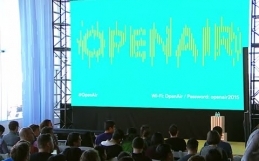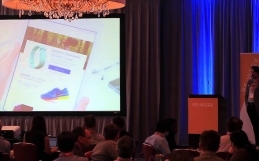If we could start the world over again with the capabilities we have today, what would it look like? Tim O’Reilly explores some examples of improving real world workflows with the power of sensors and data which means that we have to do less.
This means gathering components together into a data based system to create tools which make our lives easier and sees us moving towards building things where the internet is the operating system, rather than building stand alone apps.
O’Reilly points out that on leaving Microsoft in 2003, David Stutz commented (http://www.synthesist.net/writing/onleavingms.html) ‘Why be distracted into looking backwards by the commodity cloners of open source? Useful as cloning may be for price-sensitive consumers, the commodity business is low-margin and high-risk. There is a new frontier, where software “collectives” are being built with ad hoc protocols and with clustered devices. Robotics and automation of all sorts is exposing a demand for sophisticated new ways of thinking. Consumers have an unslakable thirst for new forms of entertainment. And hardware vendors continue to push towards architectures that will fundamentally change the way that software is built by introducing fine-grained concurrency that simply cannot be ignored. There is no clear consensus on systems or application models for these areas. Useful software written above the level of the single device will command high margins for a long time to come… Stop looking over your shoulder and invent something!’
The idea of this talk is to get people thinking about how to approach building apps using human produced data from people’s daily lives, in other words systems of computers and humans working together.
One of the products of doing this is that you deliver more value to your customers than you get and O’Reilly points to the fact that people have built multi billion dollar companies which have been started with a $35 dollar book that he probably sold them.
In short, we have to remember to put transformative technologies to work serving people rather than to make us money.



